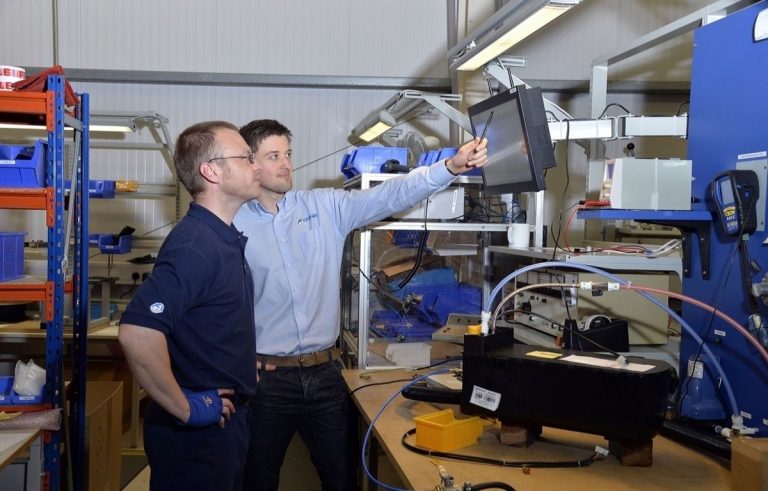
In recent years, the cost of UK university tuition has risen to the sum of £9,000 a year, causing many potential students to consider what exactly they hope to get out of their higher education studies.
Attending university was long considered worth it for the life experience alone, but now students will be leaving university facing debts of around the £40,000 mark; it would be wise to think long-term about what careers to aim for once they graduate.
Liz Lightfoot, of The Guardian’s Education section, can already see this cognitive shift taking place, and claiming today’s students are ‘more career-orientated and under pressure to take on extracurricular activities, more responsibilities and work experience to compete in the graduate jobs market’.
This careful reflection on employability as the end goal is something the jobs market seems to wholly support, as the UK Commission for Employment and Skills’ 2015 report highlights persistent shortages in highly-skilled workers. It seems to be a growing sentiment that ‘a degree is no longer enough’, as businesses and employers are calling for industry-ready graduates with practical knowledge and skills, making a strong case for universities offering courses with clear work pathways and industry experience.
For a prospective student looking to maximise their chances of finding meaningful employment, Queen’s University of Belfast (Queen’s) is a firm first choice. In the Top 1% of the World’s Universities, #7 in the Top 10 for UK Research-Intensive Universities, and sitting comfortably in the Top 25 of the World’s most International Universities, Queen’s has the credentials to prove it’s an impressive institution of Higher Education – but it’s actually the university’s approach to graduate employment that’s perhaps its most attractive feature.
Nestled in the lively capitol city of Northern Ireland, Queen’s is making a name for itself among UK industries for its dedicated approach to developing students’ skills, and cultivating employable assets in its graduates.
With such an affecting need for students to boost employability, it’s no surprise that increasing numbers of students turn to International study to get the skills they desire, and many have chosen to do so at Queen’s, with 2,000 international students from more than 100 countries deciding that it’s the best place to boost career prospects.
Study and experience abroad is always a highlight of any CV, but the International outlook also extends to the study range on offer at Queen’s, and this outward focus is what helps the university maintain its position as a top global collaborator and research station in key fields such as medicine, business, and technology.
Studying at Queen’s gives students access to top-class facilities and resources, as well as being a member institute of the prestigious Russell Group, an organisation of 24 UK universities that specialise in ‘the very best research, an outstanding teaching and learning experience and unrivalled links with business and the public sector’.
A high regard for professionalised education exists at the core of every subject, with many of Queen’s courses involving integrated work experience as part of the study programme, like the four-year course in Aerospace Engineering with a Year in Industry. This also applies to other fields such as chemical engineering, art and design, computer sciences, and marine biology.
Every one of Queen’s 15 academic schools boasts scores of partners and placement opportunities, but the Recruit our Students Employer portal really demonstrates Queen’s commitment to preparing students for their chosen careers. Queen’s holds recruitment fairs, workshops, and internship programmes to help match skill sets to particular demands, and this is all a part of the University’s enterprising ventures into Knowledge Transfer Partnerships (KTP’s) for which Queen’s are ranked an impressive first in the UK.
KTP’s aim to benefit both employers and graduates alike, as the employers offer valuable work-based experience while co-operating with the university careers team, where knowledge and skills are transferred to the business via a qualified graduate, who can also benefit from paid work within the company for up to two years.
The scope of businesses involved in the project range in size from local establishments to wide chains across the UK and the rest of the world, and the Knowledge Transfer Partnerships are one of the UK’s most successful tools for invigorating innovation and specialist education because it commits to reviving the industry with new talent, as well as investing in student opportunities, specifically after they graduate.
Thanks to its industry-lead educational focus, Queen’s University Belfast has celebrated many academic successes over the years. This year’s Graduate of the Year was Jonny Bramley, who after graduating with a BSc in Computer Science in 1987, went on to become an executive producer for the BBC, and a BAFTA-winner for his work on the 2004 Athens Olympic Games.
Mr Bramley said of his time at Queen’s in the 1980s that it was ‘a wonderful period in my life and I owe my career to the world-class educational grounding I received’.
Queen’s University Belfast continues to produce students that seek to become future leaders in their chosen fields, like this year’s winner of the First Trust Bank Queen’s Student of the Year Award, Computer Science MEng student Diane Murdock, who is not only a representative for the School of Electronics, Electrical Engineering and Computer Science, but is also student Chair of the Staff Student Consultative Committee, and winner of the Google Anita Borg Memorial Scholarship, an award dedicated to women excelling in STEM subjects and technologies.
Diane recognised the prospects on offer at Queen’s: ‘I’ve really enjoyed my four years at Queen’s – it has opened so many doors for me, has given me the opportunity to travel all over the world and has set me up for my career,’ just one example of Queen’s successful symbiotic teachings of industry-lead education.
Follow Queen’s University Belfast on Facebook, Twitter, Instagram, YouTube and LinkedIn







